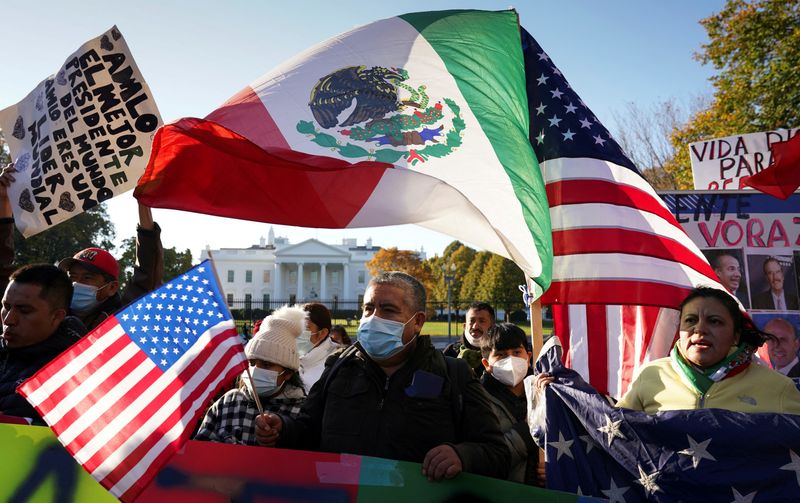All about energy agreement between U. S. and Mexico
2023.01.07 08:24

All about energy agreement between U. S. and Mexico
Budrigannews.com – A dispute over whether Mexico violated a trade pact by tightening state control of its energy market could be a major point of contention at the summit that the leaders of the United States, Canada, and Mexico are scheduled to hold next week.
In July, Washington and Ottawa filed a complaint against Mexico under the United States-Mexico-Canada Agreement (USMCA) trade agreement, escalating tensions over Mexico’s nationalist policies.
According to the complaint, efforts by Mexican President Andres Manuel Lopez Obrador to shift the market in favor of state oil company Petroleos Mexicanos (Pemex) and national power utility Comision Federal de Electricidad (CFE) had discriminated against companies from the United States and Canada.
Additionally, the businesses lamented that their operations are being hampered by bureaucratic delays.
The United States of America and Canada reached an agreement last year to extend the dispute resolution process beyond the initial 75-day window, despite the fact that progress has been halting.
A dispute panel can be appointed to rule in accordance with the USMCA if the dispute is not resolved during consultations.
Mexico has not broken any laws, Lopez Obrador has claimed, and “nothing is going to happen.”
In the name of national sovereignty, he overhauled the electricity market, giving CFE priority over private companies in connecting power stations to the grid.
He argues that previous governments skewed the market in favor of private capital and that his opposition to foreign and private participation in the energy sector is part of his effort to eradicate corruption.
He also says that energy is a domestic issue and cites a clause he added to the USMCA that says Mexico owns its oil and gas “inalienably.” According to critics, the article does not discuss his treatment of foreign businesses.
If a panel is asked to settle the dispute, most analysts believe Mexico will lose. That raises the possibility of punitive U.S. tariffs because it could be very costly for Mexico.
Prior to reaching a panel, both nations have made it clear that they want to resolve the disagreement.
After Mexico’s economy minister resigned in October, negotiations slowed down, and her successor let go of a number of skilled trade negotiators, putting an inexperienced team in charge.
The new teams claim to be addressing additional U.S. concerns and to have presented proposals that could address two of the four consultations areas. However, there has been little clear evidence of significant progress.
Energy nationalists in the Mexican government, who have taken their cues from Lopez Obrador, appear to be willing to compromise for a solution.
Because Lopez Obrador has established energy policy as a pillar of his presidency, it will be difficult for him to back down.
His administration is also aware that Mexico’s assistance in combating illegal immigration typically carries more weight in Washington because of its prominence in domestic politics in the United States. This gives the government, even if it is not explicitly stated, leverage.
Also, the Mexican economy is so intertwined with the U.S. economy that a trade war could hurt both countries at a time when the region is trying to cut back on its reliance on Asia and lower inflation.
However, the conflict has hurt investor confidence in Mexico, and Lopez Obrador is requesting assistance from the United States to finance the production of solar power in northern Mexico and attract investment in greener manufacturing, particularly in the auto industry, which is a key industry.
More Natural gas has fallen in price by almost 20% in a week








